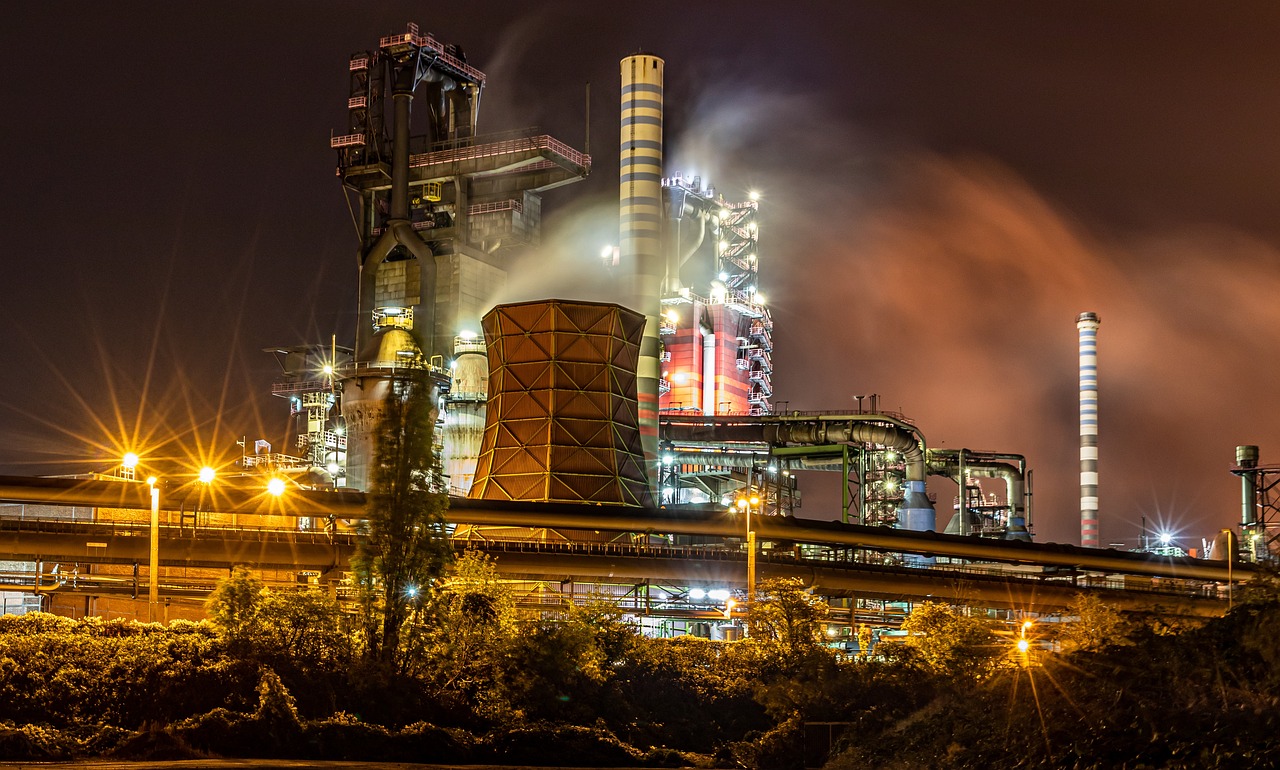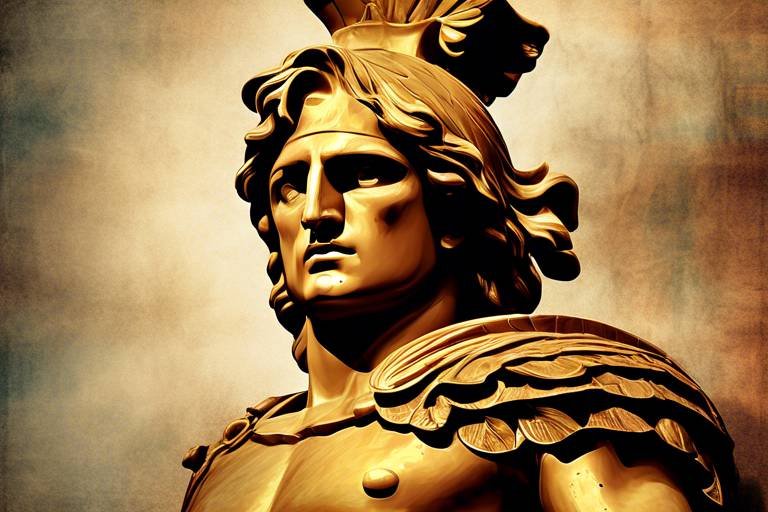The Impact of Technology on Historical Events
Technology has played a pivotal role in shaping the course of historical events, often acting as a catalyst for significant changes and advancements. From the Industrial Revolution to the Moon Landing, and from World War II to the Internet Revolution, technological innovations have left an indelible mark on the tapestry of history.
The Industrial Revolution stands as a testament to the transformative power of technology. The advent of steam power and mechanization revolutionized industries, leading to the rapid growth of economies and the restructuring of societies. Factories sprung up, transportation systems improved, and a new era of production dawned upon the world.
World War II witnessed the unprecedented use of technological advancements in warfare. Radar technology provided crucial intelligence, encryption machines enabled secure communication, and the devastating power of atomic bombs forever altered the course of the conflict. Strategies were redefined, and the war's outcome was heavily influenced by these technological innovations.
The historic Moon Landing in 1969 marked a monumental achievement in space technology. Advancements in rocketry, computing, and engineering culminated in humanity setting foot on another celestial body for the first time. The event not only showcased human ingenuity but also opened the door to further exploration of the cosmos.
The Internet Revolution brought about a paradigm shift in communication, commerce, and social interactions. The widespread adoption of the internet connected people across the globe, revolutionizing how information is shared, businesses operate, and relationships are formed. The digital landscape was forever changed, creating new opportunities and challenges.
During the Arab Spring protests, technology played a crucial role in organizing and mobilizing movements. Social media platforms and digital communication channels facilitated the rapid spread of information, enabling protesters to coordinate actions and amplify their voices. The power of technology in fostering social change was vividly demonstrated during this period.
The Cold War era was characterized by a technological race between superpowers, the United States and the Soviet Union. Developments in nuclear weapons, space exploration, and espionage technologies defined the geopolitical landscape of the time. The tension and competition fueled by these technological advancements shaped global politics for decades.
The French Revolution was not immune to the influence of technology. The proliferation of printing presses and the establishment of communication networks played a crucial role in disseminating revolutionary ideas and galvanizing support for change. Information became a powerful tool in the hands of the revolutionaries, fueling the flames of rebellion.
Medical advancements have revolutionized healthcare practices and significantly improved global health outcomes. Breakthroughs in medical technology, such as vaccines, antibiotics, and diagnostic tools, have saved countless lives and mitigated the impact of diseases. The intersection of science and technology continues to drive progress in the field of medicine.

Industrial Revolution
Exploring how technological advancements have influenced and shaped significant historical events throughout time.
The Industrial Revolution marked a pivotal moment in history, characterized by the widespread adoption of steam power and mechanization that revolutionized societies and economies. Steam engines powered factories, enabling mass production and transforming industries. The mechanization of textile production, for example, led to increased efficiency and the growth of urban centers as people migrated in search of work opportunities. The development of new transportation methods, such as railways, facilitated trade and connectivity on a global scale, reshaping the way goods were produced and distributed.

World War II
The impact of technological advancements during World War II was profound and far-reaching. The use of radar technology revolutionized military strategy by providing early warning systems against enemy attacks. This innovation gave Allied forces a significant tactical advantage in air and naval combat, ultimately influencing the outcome of crucial battles.
Moreover, the development of encryption machines such as the German Enigma played a crucial role in intelligence gathering and code-breaking efforts. The successful decryption of encrypted messages by Allied cryptanalysts, most notably at Bletchley Park, enabled strategic insights that were pivotal in shaping military operations and disrupting enemy plans.
One of the most significant technological advancements with a profound impact on World War II was the creation and deployment of atomic bombs by the United States. The bombings of Hiroshima and Nagasaki marked a turning point in modern warfare, showcasing the devastating power of nuclear weapons and leading to the swift end of the war in the Pacific.
These technological innovations not only influenced the course of the war but also reshaped the post-war geopolitical landscape, setting the stage for the Cold War and the ongoing debate on the ethical implications of using such powerful weaponry.

Moon Landing
The stands as one of the most remarkable achievements in human history, showcasing the pinnacle of technological advancement and human ingenuity. In 1969, the world watched in awe as astronauts Neil Armstrong and Buzz Aldrin set foot on the lunar surface, marking a monumental milestone in space exploration.
The success of the Moon Landing mission was made possible by a series of technological innovations and meticulous planning. The development of powerful rockets, such as the Saturn V, enabled the spacecraft to break free from Earth's gravitational pull and journey towards the moon. The intricate navigation systems on board guided the astronauts with precision through the vast expanse of space.
Upon reaching the moon, the Lunar Module, a marvel of engineering, safely descended to the surface, defying the challenges of landing on an alien terrain. The moment Armstrong uttered the famous words, "That's one small step for man, one giant leap for mankind," the world witnessed the culmination of years of scientific research and technological advancements.
Moreover, the Moon Landing not only symbolized human achievement but also sparked a new era of space exploration and scientific discovery. The data and samples collected during the mission provided invaluable insights into the moon's geology and history, expanding our understanding of the universe.
As we look back at the Moon Landing, it serves as a testament to what is possible when human determination and technological innovation converge. The event continues to inspire future generations to reach for the stars and push the boundaries of what is deemed achievable.

Internet Revolution
The has undeniably altered the fabric of society, reshaping how we communicate, conduct business, and interact with the world at large. The advent of the internet has not only connected people across the globe but has also revolutionized the way information is accessed and shared. This digital transformation has paved the way for e-commerce, online education, social networking, and a plethora of other online services that have become integral parts of our daily lives.
One of the most significant impacts of the Internet Revolution is the democratization of information. With just a few clicks, individuals can access a wealth of knowledge on virtually any topic, breaking down barriers to education and empowering people to learn and grow like never before. The internet has become a vast repository of information, offering opportunities for self-improvement and exploration that were previously unimaginable.
Furthermore, the internet has revolutionized the way businesses operate, enabling companies to reach a global audience and conduct transactions online. E-commerce platforms have transformed the retail industry, allowing consumers to shop from the comfort of their homes and opening up new markets for businesses of all sizes. The internet has also facilitated the rise of digital marketing, data analytics, and online advertising, providing companies with powerful tools to reach their target audiences effectively.
In addition to its impact on communication and commerce, the Internet Revolution has reshaped social interactions and relationships. Social media platforms have become virtual meeting places where people can connect, share experiences, and engage with others from diverse backgrounds. These platforms have not only transformed how we socialize but have also played a crucial role in shaping public discourse, activism, and social movements.
As the Internet Revolution continues to evolve, it raises important questions about privacy, security, and the ethical use of technology. The proliferation of online platforms has brought concerns about data privacy and cybersecurity to the forefront, prompting discussions about regulations and safeguards to protect users from potential threats. Balancing the benefits of the internet with the need for responsible use and protection of personal information remains a key challenge in the digital age.

Arab Spring
The Arab Spring was a series of protests and revolutions that swept across the Middle East and North Africa in the early 2010s, leading to significant political changes in several countries. The widespread use of social media platforms such as Twitter and Facebook played a crucial role in organizing and mobilizing protesters, allowing for the rapid spread of information and coordination of demonstrations.
These digital communication tools enabled ordinary citizens to connect, share their grievances, and collectively demand political reform and social justice. The power of social media in the Arab Spring highlighted the potential for technology to empower grassroots movements and challenge authoritarian regimes.
Moreover, the Arab Spring demonstrated how digital platforms could circumvent traditional media censorship and government control, providing a space for free expression and dissent. The ability to document and share real-time updates and footage of protests allowed the world to witness the events unfolding in the region, garnering international attention and support for the movements.
However, while social media played a pivotal role in the initial stages of the Arab Spring, the long-term outcomes of the uprisings varied across different countries. Some nations experienced political upheaval and regime changes, while others faced violent crackdowns and prolonged conflicts.
In retrospect, the Arab Spring serves as a testament to the transformative power of technology in shaping the course of history and influencing political movements. It underscores the dual nature of digital tools, capable of both sparking revolutions and presenting challenges in the aftermath of upheaval.

Cold War
Exploring how technological advancements have influenced and shaped significant historical events throughout time.
The Industrial Revolution marked a turning point in history, driven by the revolutionary advancements in steam power and mechanization. The introduction of steam engines powered by coal transformed societies and economies, leading to the rise of factories and mass production. This technological leap not only changed the way goods were manufactured but also reshaped social structures and urban landscapes, laying the foundation for modern industrialized societies.
World War II witnessed the profound impact of technological innovations on warfare. Radar technology revolutionized military tactics by providing early warning systems against enemy attacks. Encryption machines like the Enigma played a crucial role in code-breaking efforts, influencing the outcome of key battles. The development and deployment of atomic bombs by the United States forever altered the nature of warfare and global politics, leaving a lasting impact on the world.
The historic moon landing in 1969 stands as a testament to human ingenuity and technological prowess. Advancements in space technology, including the development of powerful rockets and navigation systems, culminated in the successful Apollo 11 mission. This monumental achievement not only symbolized a giant leap for mankind but also sparked a new era of space exploration and scientific discovery.
The advent of the internet has revolutionized the way we communicate, conduct business, and interact with one another. From the early days of dial-up connections to the seamless global networks of today, the internet has transformed the world into a connected digital village. E-commerce, social media, and instant messaging have become integral parts of our daily lives, shaping modern society in unprecedented ways.
The Arab Spring uprisings of the early 2010s showcased the power of social media and digital communication in mobilizing mass movements for political change. Platforms like Twitter and Facebook served as catalysts for organizing protests and spreading awareness, bypassing traditional media censorship. The use of technology enabled activists to coordinate actions across borders, sparking a wave of revolutions and political transitions in the Middle East and North Africa.
The Cold War era was defined by the intense technological rivalry between the United States and the Soviet Union, shaping global politics and security dynamics. The development of nuclear weapons and the race for space exploration were key features of this ideological standoff. From the launch of Sputnik to the Cuban Missile Crisis, technological advancements played a pivotal role in the high-stakes competition between the two superpowers, influencing diplomatic strategies and military doctrines.
The French Revolution of 1789 was fueled in part by the dissemination of revolutionary ideas through printing presses and communication networks. Pamphlets, newspapers, and political tracts spread rapidly across France, galvanizing support for radical change. The ability to mass-produce and distribute printed materials played a crucial role in mobilizing the populace and shaping the course of the revolution, leading to the downfall of the monarchy and the rise of a new era of republicanism.
The field of medicine has been revolutionized by groundbreaking technological advancements, improving healthcare practices and enhancing global health outcomes. From the discovery of antibiotics to the development of advanced imaging techniques, medical technology has saved countless lives and alleviated human suffering. Innovations in areas such as telemedicine, gene editing, and personalized medicine hold the promise of further transforming the healthcare landscape, offering new hope for patients around the world.

French Revolution
The French Revolution stands as a pivotal moment in history, where the power of technology, particularly the printing press and communication networks, played a significant role in shaping the course of events. The dissemination of revolutionary ideas through printed materials like newspapers, pamphlets, and posters fueled the spirit of rebellion among the masses. The ability to quickly spread information and mobilize supporters through these mediums contributed to the rapid and widespread nature of the revolution.
Moreover, the emergence of communication networks, such as secret societies and underground channels, allowed revolutionaries to coordinate their efforts and organize uprisings across different regions of France. These networks facilitated the exchange of ideas, strategies, and intelligence, enabling the revolutionaries to stay connected and united in their cause against the monarchy and aristocracy.
The French Revolution was not just a political upheaval but also a social and cultural revolution, where technological advancements in communication played a crucial role in galvanizing the masses and fostering a sense of unity and purpose among the revolutionaries. The power of the printed word and interconnected networks paved the way for a new era of democracy and paved the path for modern political ideologies and movements.

Medical Advancements
Exploring how technological advancements have influenced and shaped significant historical events throughout time.
Medical advancements have played a pivotal role in revolutionizing healthcare practices and improving global health outcomes. Breakthroughs in medical technology have not only extended human lifespan but also enhanced the quality of life for individuals worldwide. From the discovery of antibiotics to the development of advanced surgical techniques, the field of medicine has seen remarkable progress over the years.
One of the most significant medical advancements is the invention of vaccines, which have successfully eradicated deadly diseases and prevented widespread outbreaks. Vaccination programs have saved countless lives and have been instrumental in controlling and eliminating infectious diseases that once posed major threats to public health.
Furthermore, the advent of diagnostic imaging technologies such as MRI and CT scans has revolutionized the way diseases are detected and treated. These non-invasive imaging techniques allow healthcare providers to accurately diagnose conditions and plan appropriate treatment strategies, leading to better patient outcomes.
In addition to diagnostic tools, the field of genetics has witnessed groundbreaking advancements with the mapping of the human genome. This milestone has paved the way for personalized medicine, where treatments are tailored to an individual's genetic makeup, increasing the effectiveness and precision of medical interventions.
Moreover, the integration of telemedicine and digital health platforms has expanded access to healthcare services, especially in remote or underserved areas. Patients can now consult with healthcare professionals, receive medical advice, and monitor their health remotely through telecommunication technologies, enhancing convenience and improving healthcare delivery.
Overall, medical advancements continue to push the boundaries of what is possible in healthcare, offering new hope and possibilities for the future of medicine and global health.
Frequently Asked Questions
- How has technology impacted historical events?
Technology has played a significant role in shaping historical events by introducing new tools, communication methods, and capabilities that have influenced the outcomes of various periods in history. From the Industrial Revolution to the Moon Landing, technological advancements have transformed societies, economies, and warfare strategies.
- What role did the Internet Revolution play in society?
The Internet Revolution has revolutionized communication, commerce, and social interactions by connecting people across the globe in ways never before imagined. It has facilitated the exchange of information, enabled online businesses to thrive, and transformed how individuals interact and engage with one another.
- How did medical advancements impact global health outcomes?
Medical advancements have led to significant improvements in healthcare practices and global health outcomes by introducing innovative treatments, diagnostic tools, and preventive measures. These breakthroughs have enhanced the quality of life for many individuals and contributed to the overall well-being of populations worldwide.



















